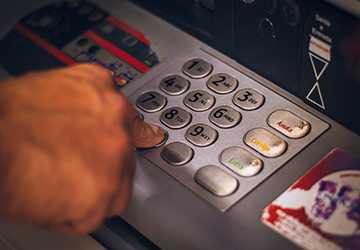If you're struggling to pay off your debt or your interest rates are so high that there's nothing you can do about it, you may be in too much debt.
Being unable to save, falling behind on bills, and borrowing extra money to make ends meet are all consequences of being overly indebted, even when repayments are manageable. The following warning signs indicate that you may be in too much debt.

When does debt become unbearable?
Almost every household in the United States has mandatory annual expenses. Mortgages, rent, cars, credit cards, and in many cases, student loans are all things that need to be paid. The question that needs to be resolved is how much money should be allocated to each sector.
According to financial experts, here's how much you should invest in these things. Most mortgage payments range from 31% to 36% of a household's gross annual income.
These caps may need to be adjusted if wage increases are not sustainable. Health care and higher education were also more affordable for previous generations.
You need to know what you owe
Avoiding financial commitments doesn't make them go away. If you're intentionally avoiding debt, it's probably because you owe more than you can reasonably repay. Obtain a copy of your credit report and recent bank statements from each of your creditors. The total amount you owe is shown here.
Delay in payment due to financial constraints
If you have more debt than you can pay off each month, you have accumulated too much debt. If you struggle to make monthly payments because you lack funds, consider seeking debt consolidation services. Additional fees and penalties will apply if you pay late.
Avoid collection calls
When a collection agency contacts you, it's a sign that your bill is delinquent and may not be paid soon. You may be able to keep creditors and collection agencies from calling you for a while but don't let that fool you into thinking they'll eventually stop charging you with the money you owe them. A successful lawsuit may give the creditor the right to seize your earnings or debit your bank account.

Apply for a loan to pay overdue bills
Excessive debt occurs when you borrow money from friends and family, use a credit card, or receive a cash advance from a lender to make ends meet. When your borrowing opportunities dry up, you'll be forced to borrow directly from your lenders and loved ones.
Financial worries keep you up at night
Can't sleep because you're stressed about paying the bills? Can't sleep because you're afraid of living beyond your means? This is a clear indication that your debt levels are skyrocketing. Mounting debt stress can exacerbate existing health problems. Reducing stress and saving lives in extreme situations are two benefits of having a debt elimination strategy. 2
Money Affects Work Performance
When you have financial problems at work, it's time to change tactics. Losing a job at this time can be disastrous as it leads to a significant drop in income.
Your emergency fund is gone
A lack of savings is sometimes a sign of too much debt to manage. It's a red flag when you have to dip into your emergency fund to cover basic expenses like rent or groceries because you're busy paying off debt.
You are seeking financial relief.
The debt burden can lead many to turn to drugs and alcohol for solace. You may even be in debt for drug prices. If you want to get out of debt for good, you should first seek substance abuse treatment.
To live, there must be credit
When you have to load your grocery bill onto your credit card, you know you've got a problem. Either you need to make more money, or you need to manage the money you have well. You either have to find a way to make ends meet with the money you already have or find a way to make more money.
The money you spend will be hidden
If you cannot have open and honest conversations with those close to you, your debt levels may be too high. When you hide debt from others, you may become obsessed with it, fearing it will prevent you from spending it.




